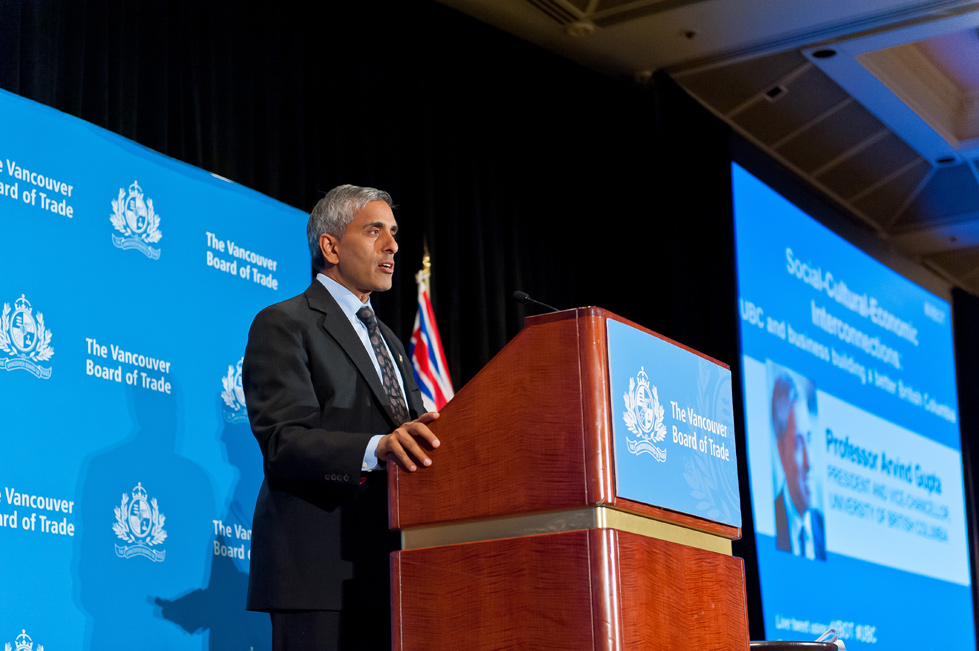During his October 1 keynote address to the Vancouver Board of Trade, Professor Arvind Gupta, president and vice-chancellor of the University of British Columbia, introduced a five-point innovation agenda, with strategies to interlink the university and the community through innovation, teaching and research to drive BC’s knowledge-intensive economy. The five strategies are:
- Building strategic partnerships to boost graduates in all areas that benefit our economy and enhance our society
- Improving community access so that UBC is perfectly positioned to understand and adapt to what is happening in the community
- Increasing employability by providing career-building and lifelong learning opportunities
- Supporting the innovation ecosystem by linking research to community
- Building UBC’s internal support structures for innovation to support entrepreneurship amongst students, faculty, and staff
“Today, every globally significant city – every city considered amongst the ‘most liveable’ – boasts a world-class university,” said Prof. Gupta. “We must develop even closer ties to our communities to produce the kind of results we’re seeing in high-tech, health, finance and creative hotspots that have emerged in Toronto, San Diego and London.”
Among other things, the innovation plan includes:
- building strategic partnerships across sectors including high-tech (health sciences, bio-tech, multi-media, IT and clean tech) creative (architecture, design, film, gaming, and the performing arts) and resource (forestry, mining and LNG);
- boosting UBC’s funding for research excellence by $100 million;
- doubling student internships and co-op placements;
- connecting the University to BC’s innovation ecosystem along the Broadway corridor and through an increased presence in downtown Vancouver and other urban regions with the goal of unlocking the region’s world-class capacity for knowledge generation;
- augmenting existing infrastructure, such as the UBC Corporate Relations Office and the University-Industry Liaison Office
UBC has already been indispensable in establishing Metro Vancouver as a provincial economic engine and a Western Canadian centre of culture and innovation said Gupta.
He added improvements require UBC to become more innovative and accountable with the goal of improving the quality of its teaching and research.
“We are turning UBC inside out, tearing down any remaining walls between us and you, putting our resources – human, physical and virtual – in service to the community,” said Prof. Gupta. “The rewards of this kind of community partnership are inestimable.”
